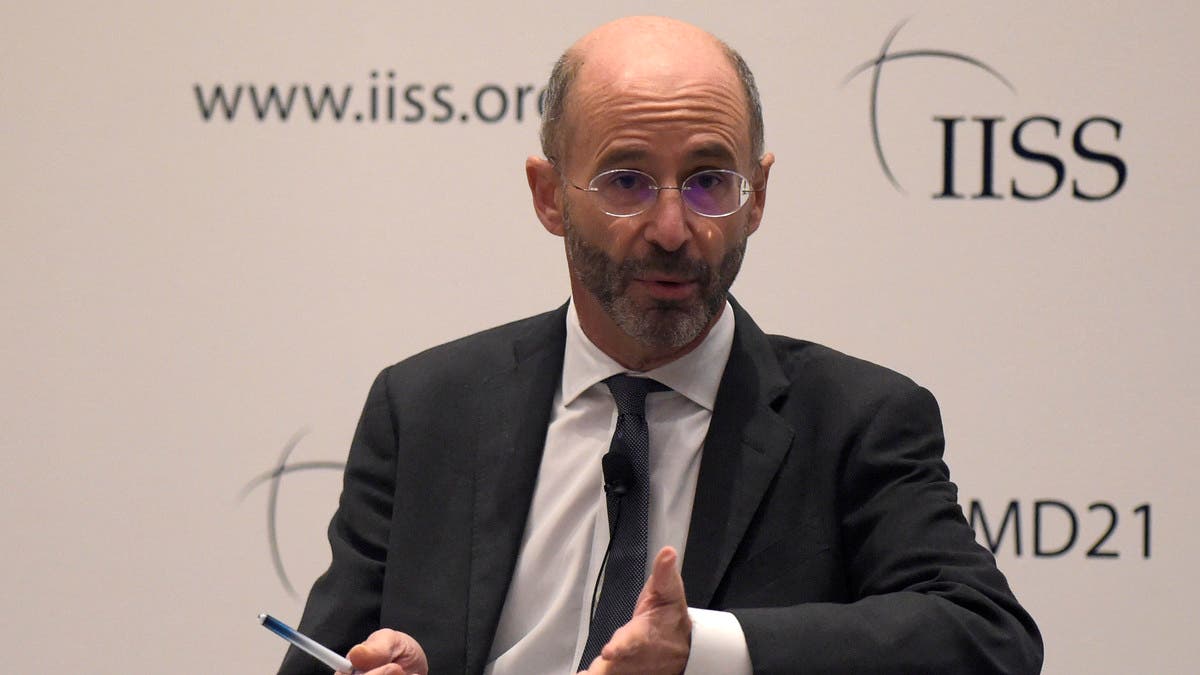US Special Envoy for Iran, Robert Malley, whipped up a storm of criticism on social media after he welcomed news that some Iranian women were allowed to attend a football match in Iran, with users accusing him of “parroting Iranian propaganda.”
Iran, whose theocratic rulers have long been opposed to women attending men’s football matches, allocated 2,000 out of 10,000 tickets to women for Thursday’s match, according to state media.
Iranian women have been banned from stadiums hosting men’s football matches since shortly after the 1979 Islamic Revolution.
For the latest headlines, follow our Google News channel online or via the app.
Iran became the first Asian team to qualify for the 2022 World Cup in Qatar on Thursday after defeating Iraq 1-0 in Tehran.
Malley congratulated the Iranian team for their qualification on Twitter on Friday. “It’s good to see women were allowed to attend the match,” he added in the same tweet, prompting an outcry on social media, mostly from Iranians.
Critics argued that the matter did not warrant a positive response from Malley given that Iran had only allowed a select number of women to attend the match under pressure from world football’s governing body FIFA.
Rather than signifying a positive shift in Iran’s policy on the issue, permitting a limited number of women to attend the match was merely a propagandist effort to “appease” FIFA, they argued.
They further argued that Malley’s tweet played into the supposed Iranian propaganda.
Women spectators at the match were hand-picked and “most of them were from the families of officials or women football and futsal players,” Radio Farda, the Persian-language broadcaster at Radio Free Europe/Radio Liberty, reported.
FIFA ordered Iran in September 2019 to allow women access to stadiums without any restrictions. The FIFA directive came after a young Iranian woman named Sahar Khodayari – dubbed “Blue Girl” for the colours of her favourite team, Esteghlal FC – died after setting herself on fire outside a court where she feared being jailed for trying to attend a match disguised as a man.
Malley’s tweet drew condemnation from scores of Iranians – including activists and journalists – on Twitter.
“Please don’t parrot Islamic Republic propaganda @USEnvoyIran,” Iranian-American journalist and activist Masih Alinjead wrote in response to Malley.
“To fool/appease FIFA, [the] regime selected a tiny group of women – 2% of the stadium – & took photos/videos to deceive the international media. Don’t praise gender apartheid. The stadium was not open to all women.”
Holly Dagres, a senior fellow at the Atlantic Council, described Malley’s tweet as “problematic.”
“While I appreciate the outreach, this is a problematic tweet. Iran only allowed a certain number of women to “freely” enter the stadium—and that was only to appease FIFA,” she wrote on Twitter.
Malley told Al Arabiya English in a statement: “Iranian women, like all women, should have every right to cheer their national team. I am glad that FIFA has taken a strong stand on the issue and that this qualifying match marked some movement in the right direction.”
“I remember the tragic death of Sahar Khodayari a few years ago,” Malley said, referring to “Blue Girl.” “The government should give every fan an opportunity to attend these events. This isn’t about soccer or even politics, but about basic equality.”
Iranian dissidents and activists accuse Malley of being overly lenient with the Iranian regime and inattentive to its human rights abuses. When Malley was appointed as the Biden administration’s Iran envoy in January 2021, they expressed concern that he would overlook domestic repression in Iran in order to reive the 2015 Iran nuclear deal.
Malley was a key member of former President Barack Obama’s team that negotiated the deal, formally known as the Joint Comprehensive Plan of Action (JCPOA). Washington withdrew from the deal in 2018 under then-President Donald Trump, reimposing sweeping sanctions on Tehran.
A US delegation headed by Malley has been participating in indirect talks with Iran in Vienna aimed at restoring the 2015 deal since last April.
Three members of the US negotiating team – including Richard Nephew, who served as Malley’s deputy – have left the team after calling for a tougher approach in the talks with Iran, the Wall Street Journal reported last week, citing people familiar with the negotiations.
Silence from Iran
Iran, for its part, did not react to Malley’s tweet, and its media overlooked the gesture entirely.
“It doesn’t surprise me that [Iranian] official media has been muted in its reaction to the tweet. Rapprochement between Washington and Tehran is just not on the menu for the current Iranian establishment,” Jason Brodsky, policy director at United Against Nuclear Iran (UANI), told Al Arabiya English.
“In general, it would be more helpful for the US State Department to be consistently speaking out against human rights abuses inside Iran rather than occasional tweets coupled with attempts at engagement with a regime that is just not interested in the overtures,” said Brodsky.
Read more:
Iran nuclear talks paused, ‘political decisions’ needed
Qatar diplomat visits Iran as Tehran and Washington consider direct nuclear talks
Iran nuclear agreement unlikely without release of US prisoners: Malley

 World3 years ago
World3 years ago
 World3 years ago
World3 years ago
 Business12 months ago
Business12 months ago
 Entertainment7 years ago
Entertainment7 years ago
 World7 years ago
World7 years ago
 Entertainment7 years ago
Entertainment7 years ago






